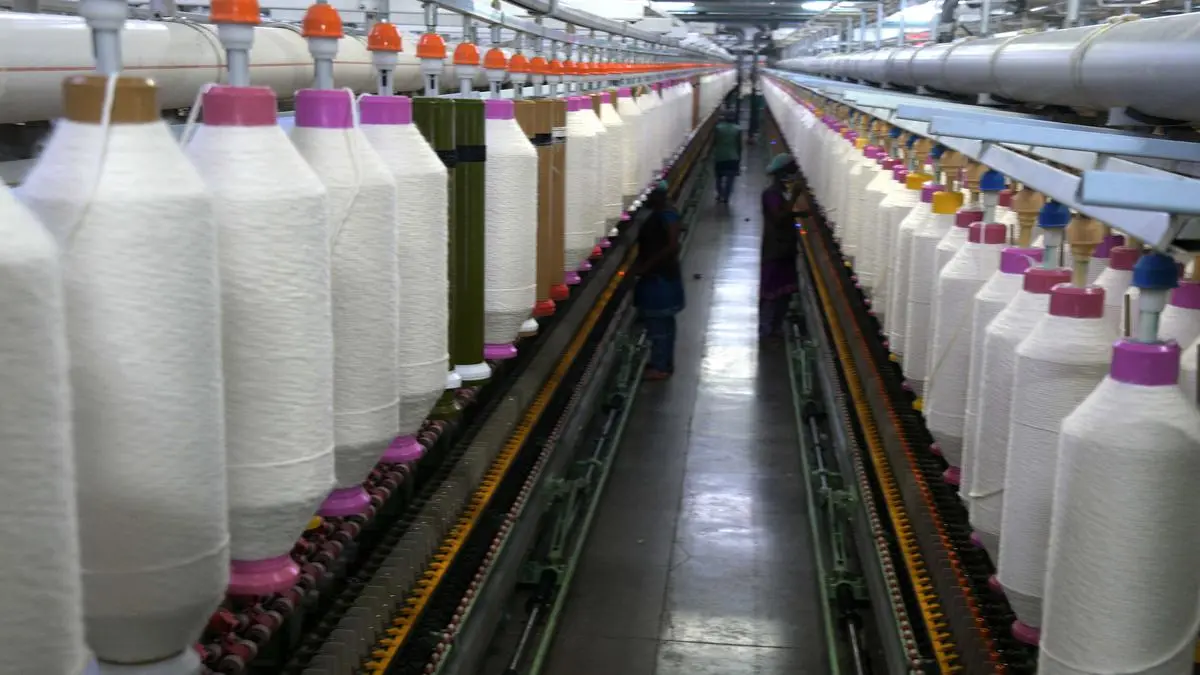Pallipalayam, a small town near Erode in Tamil Nadu, finds itself in the middle of the US-China trade war.
The town is a significant hub in India for producing Viscose Spun Yarn (VSY) that is used in knitted and woven fabrics. This textile cluster has 60+ spinning mills manufacturing only viscose spun yarn and it is now adversely affected by the trade war set off by the US administration.
The textile manufacturers in the town say that the Chinese have begun to dump spun yarn at a cheaper rate and in turn impacted yarn production at Pallipalayam. Sources told businessline that the dumping is happening in major ports, including Kandla and Mundra.
Typically Viscose Staple Fibre (VSF) is a man-made fibre that is spun into VSY. Around 80 per cent of VSF produced in India is consumed by the mills in Pallipalayam to make the threads, a source said.
Across India, about 2,200 tonnes of VSF are consumed by the mills in a day and of that nearly 2,000 tonnes get consumed in Pallipalayam alone, he added. “In India, our village is the specialist in producing VSY with a market share of nearly 85 per cent,” he said.
In Pallipalayam there are nearly 60 spinning mills manufacturing only VSY. Ramesh Natrajan, Executive Director of AGT Mills in Pallipalayam and president of The Indian Manmade Yarn Manufacturers Association, said that the cost to manufacture is ₹205 per kg and sell at around ₹198 per kg to weavers and knitters in places like Erode, Palladam, Tiruppur, Delhi and Punjab to make fabrics.
“However, the Chinese are dumping at ₹185 per kg that too of poor quality after the trade war started with the US. Since China is unable to sell the VSY in other markets, it is dumping in India,” he said. Natarajan urged the Centre to intervene by putting anti-dumping duty on VSY from China.
K Venkatachalam, Chief Advisor, Tamil Nadu Spinning Mills Association, last week sought the intervention of the Textile and Commerce Ministries to prevent the flooding of cheaper VSY imports from China. The industry is urging swift government intervention to protect the ecosystem from unfair imports.
The textile industry is closely watching tariff developments amid concerns over potential dumping by China, Prabhu Dhamodharan, Convenor of the Coimbatore-based Indian Texpreneurs Federation (ITF), said. Historically, when facing export hurdles with the US or EU, China has redirected excess textile goods to Asian markets like India. Even before the latest US tariffs, China’s textile and apparel exports fell by 4.5 per cent in Jan–Feb 2025, he added.
In recent times, dumping in knitted fabrics and polyester yarn/fabrics was curbed through timely government action resulting in a 43 per cent YoY drop in knitted fabric imports this January. Now, the focus shifts to dumping of viscose yarn—a key segment with hundreds of spinning mills already under stress. Unchecked imports could severely impact this sector.
Published on April 21, 2025
Anurag Dhole is a seasoned journalist and content writer with a passion for delivering timely, accurate, and engaging stories. With over 8 years of experience in digital media, she covers a wide range of topics—from breaking news and politics to business insights and cultural trends. Jane's writing style blends clarity with depth, aiming to inform and inspire readers in a fast-paced media landscape. When she’s not chasing stories, she’s likely reading investigative features or exploring local cafés for her next writing spot.






